This recent spate of patriotic holidays has got me thinking about country music. It’s not that I’m an aficionado of that genre by any stretch of the imagination. It’s just that the songs brilliantly capture the anguish of “somebody done somebody wrong”. For me, the anguish is that spiritual-emotional space where the personal meets the political, an embodiment of fragmentation. It is the hollowed-out pit in my stomach as I respond with expedient politeness to a well-intentioned “Happy 4th”, and now to newly minted, federally-approved “Happy Juneteenth” greetings. Each display of rah-rah flag-waving triggers the anguish of “love gone wrong” as does the self-congratulatory fanfare that passes itself off as patriotism. I do enjoy the holiday backyard cookouts, mostly because they summon childhood memories of East Orange summers with my Uncle Bennie.
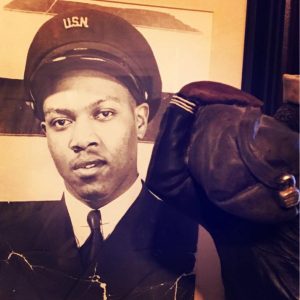
He was a World War II veteran who served up a feast of food and love to family and friends every 4th of July. Even now I look forward to the over-wrought flourishes of Tchaikovsky’s 1812 and the dazzling fireworks over the Charles River. It’s when holiday rituals become festivals of mandatory dissociation that my soul cringes. It’s when the performance of patriotism demands erasure of memory, denial of reality, and when that level of suppression doesn’t work, the annihilation of truth (and truth-tellers).
How does it feel to love a country that doesn’t love you back? Before Frederick Douglass issued his scathing indictment of July 4th revelries, Maria (ma-rye-ah) W. Stewart urged resistance to the tyranny of legalized oppression in a land founded on professed love of equality. No doubt it was the anguish of repudiated love that spurred Frederick Douglass to describe Independence Day celebrations as “an unholy license”, “mere bombast”, and “brass-fronted impudence”. Although he later recruited his own sons to fight for the preservation of the nation, Frederick Douglass must have felt the pangs of love gone wrong. Could Stewart and Douglass have known how painfully prescient their 19th-century orations would prove in 21st century American life?
In the 21st century, “love gone wrong” manifests as collectivized antipathy rooted in white supremacy and its corollaries, indigenous exploitation, and anti-black racism. The violence of anti-black racism and indigenous exploitation is not a betrayal of this nation’s founding principles, it is a revelation of the Founders’ consciousness, conscience, and commitment. I know. Racism is more than a “black and white” issue. My point is this: Until we generate the collective will – the courage to tell our fuller truths about the transgenerational traumas that shape our imagination of who we are as a nation, we will continue to normalize the cruel betrayals that plague 21st-century life in these United States.

Cruelty can start as a whisper. And as Maria Stewart put it: “It is harder to kill a whisper than even a shouted calumny”. Perhaps that explains our collective complicity with cruelty: perhaps the whispers are so normalized that they seem inconsequential, so “soft” that we don’t even hear them. Often the whispers start with co-optation of language. Language is used to mystify reality or to protect the interests of the power wielders. Take for example the edict from the International Olympics Committee (IOC) banning “political” statements that contribute to “divisive disruption” and “disrespect” to other athletes. What requires notice here is how they choose to determine what is or is not political, what is or is not disruptive, and divisive. Whenever athletes raise a fist, take a knee, or stand at rapt attention with hand over heart, they are making a political statement, one that might well challenge the lived experience of other athletes. For a power-wielding body to decide whose experience matters and whose experience is worthy of expression is a profoundly political act; it is an enactment of power that affirms and validates one group through the denigration of another. What makes that power abusive is the pretense that it doesn’t exist.
Why should we care about what happens to elite athletes playing obscure games in faraway countries? What does any of that have to do with ritualized patriotism in the USA? I guess those are fair questions. After all, not many of us know or care about hammer throwing. We may not care about hammer throwing, but we should care about the mystification of reality. We should care about the mind-bending contortions of language that justify exclusion, erasure, and annihilation. We should care because this perversion of thought, language, and deed is foundational to the conceit of American exceptionalism. An example? The perpetrators and beneficiaries of cultural genocide and land theft are mythologized as stout-hearted liberty-loving settlers. To be fully functional, this narrative contrivance requires “savages”. It requires atavistic adversaries whose right to liberty, life, and land has remained contestable from the storied “first encounters“on Massachusetts shorelines to resource-deprived reservations of the present day. No one is well served by stories that are literally white-washed to justify tyranny in the land of the free and the home of the brave.

The well-worn quote that history is written by victors can no longer be regarded as a superficial aphorism; it has now taken on the weight of threat. Just days before the first national recognition of Juneteenth, Donald Trump opined that teaching critical race theory to children is a form of psychological abuse. (Clearly, he doesn’t know what critical race theory is, and he doesn’t need to know. Facts get in the way of promoting white supremacy.)
Apparently, legislators in Texas, Tennessee, Iowa, Arkansas, and Oklahoma agree with him. Classroom teachers in these states (and others) now operate under the threat of being fined or fired should their discussions about race and racism become part of a history lesson. And of course, it’s all another big lie, but then that’s how political amorality works. Lauren Boebert, that Glock-toting avatar of spitefulness and rage, contends that critical race theory teaches children to hate each other. Her compatriots – way too many to be named – spew similar fabrications all based on the lie that they want to protect the tender sensibilities of white children and prevent racial enmity in the future. In other words, American History can’t be taught because white children are too fragile to learn painful truths, even though politically minoritized children (typically black and brown) are forced to live those painful truths daily. Boebert, Marjorie Greene, and their ilk are upholding the legacy of the Daughters of the Confederacy, those genteel ladies who demanded that textbooks not only minimize the role of slavery in the Civil War, but that they also paint idyllic pictures of the relationship between enslaved persons and enslavers. 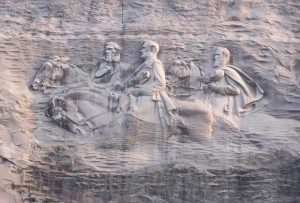 To do otherwise, they demurred, would be “unjust to the South”. Not to be outdone in repelling the threat of injustice posed by critical race theory, the governor of Texas canceled a book event during which authors would describe the racial history of The Battle of the Alamo. It’s officially okay, in fact, advantageous to the tourist trade to “Remember the Alamo”. It’s just that you must forget that Jim Bowie was a slave trader and the Texas fight for independence was spurred by outrage that Mexico had outlawed slavery (almost three decades before the United States) Texas wanted to enter the USA as a slave state. Know where else history is taught through erasure? North Korea.
To do otherwise, they demurred, would be “unjust to the South”. Not to be outdone in repelling the threat of injustice posed by critical race theory, the governor of Texas canceled a book event during which authors would describe the racial history of The Battle of the Alamo. It’s officially okay, in fact, advantageous to the tourist trade to “Remember the Alamo”. It’s just that you must forget that Jim Bowie was a slave trader and the Texas fight for independence was spurred by outrage that Mexico had outlawed slavery (almost three decades before the United States) Texas wanted to enter the USA as a slave state. Know where else history is taught through erasure? North Korea.
We should all care when truth becomes irrelevant, and justice criminalized. Over the past six months, legislators in over forty states have proposed laws restricting access to voting – all based on the Big Lie that the presidential election was stolen. In a brazen show of political venality, Georgia legislators passed a law making it illegal to give food or water to people waiting in long voting lines. The venality doesn’t stop at preventing people from giving water to thirsty citizens participating in their civic duty. Who could have imagined that in defense of the Big Lie, citizens of a country they profess to love would
all the while taking selfies and going on Instagram Live? “It’s ya boy Gerald here raising hell!” “It’s ya girl Christie standing up for our rights!”
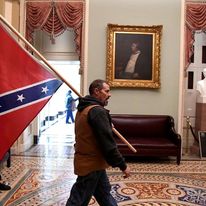
Maybe we should have; we watched as the hatred, violence, and unhinged narcissism metastasized over the course of four years. It mostly went unchecked. When we live in a universe of “alternate facts”, criminals become “tourists” and insurrectionists become passionate patriots exercising their rights to the freedom of speech and assembly. When lies are normalized, there is a straight and short path to lethal immorality. Of course, Derek Chauvin thought he could murder George Floyd while gazing placidly into a camera; some polls indicate that 46% of people who identify as Republicans agree with him. We can no longer claim incredulity that the governor of Florida would legalize vehicular assault and homicide against people exercising their rights to free speech and assembly. After all, he didn’t vote himself into office, did he? And the fact that some people tend to die when they are run over by vehicles has not diminished his approval rating by over 50% of his fellow citizens.
On the morning of the 2016 election, I walked around the pond at Wellesley College with a heavy sense of foreboding. In spite of the fact that I live a relatively privileged life, I have known since I was four years old that this country was not made for me. Everything in the racial apartheid culture of my youth was organized to teach me that I was a “nobody”, born to serve and protect the privileges of the white “somebodies “. In the American story of racial apartheid, I knew that my life mattered only to the extent that I agreed to those terms of engagement. (Thank God for my mother Mary, my Aunt Margaret, and Uncle Bennie who taught me that this particular American story of reality was a Big Lie.) On the morning after the 2016 election, the heavy foreboding morphed into deep personal grief. It was (and is) also political grief. I knew that the election was telling a very American story, yet another iteration of the original Big Lie. The outcome was yet another revelation of the white supremacist longings at the root of American culture.
Over the past four years, I have become increasingly impatient with the expression “unbelievable!” as a reaction to brazen perversions of justice. Those acts can only be unbelievable if we shield ourselves from noticing the violence that starts as a whisper when we protect our comforts by ignoring the grinding indignities borne by people who have been relegated to the underside of life in these United States. So, on the morning after the 2016 election, I was disappointed that a shameless dumb-ass would be occupying the White House for at least four years. I was more disheartened that tens of millions of Americans were proud to lift him up as the voice of their deepest yearnings. What felt even more dangerous was the millions more – people who did not vote for him – who rushed to cast him as an aberration of polite society, a token representative of unenlightened people. I had to wonder if they might have been less critical had he served up a softer, less embarrassing form of racism. To be effective, racism does not require a bad actor doing and saying some bad stuff. It works with supreme efficiency with its foundational lies being normalized as a way of life. Yes – our history is riven through with shameful acts perpetrated by shameless people who need us, the body politic to carry their shame. The world has always been full of bad actors doing bad stuff, and that includes our United States. There have always been people who stoke our all too human fears and anxieties to gain power. There have always been bad actors” who promote the Big Lie that the only way to prove “somebody-ness” is to ensure there is always a caste of “nobodies” to serve as receptacles for pain and degradation. In that universe, the ability to exercise power over another is a measure of human worth. I am reminded of a refrain that ran through one of Nikki Giovanni’s early poems in which she decried the hypocrisies of what we call Western civilization:
Nah, they ain’t got no shame.”
The one and only time I met Nikki Giovanni I told her that my daughter Angela grew up with this poem. It is a poem that reminds us all that we can’t afford to be entrapped in history defined by erasures that only deliver a false peace. Our souls wither when we carry the shame of false peace.
Shameless people foist their shame onto other people. That’s how they roll. But here is the deal they have to strike: they need you and me to agree to carry their shame. If there is one thing all of us can do it is to refuse to carry the shame of the shameless. I refuse. You can too. In fact, we must do it together. That’s my version of hope. Kaethe Weingarten said it most eloquently: “Hope is something we do with others… its effects on body and soul [are] too significant to be left to individuals alone. Hope must be the responsibility of the community”. When we refuse to carry the shame of the Big Lie, we are choosing hope over comfort.
How we choose hope may look different for each of us. I choose to do it by “talking back”, by interrogating the “taken-for-granted” norms and niceties of polite society. I know it’s an irritating habit, but I am ever mindful that silence may signal complicity. In ways large and small, verbal and nonverbal, I can talk back. That doesn’t mean I go around looking for opportunities to fight every day. Although I actually tend to avoid conflict, I also avoid the gut-wrenching false peace that undergirds abusive power. I choose the discomfort of disharmony over complicity with the soul-scarring lies of systemic injustice.
I choose hope by refusing to fake common cause in the name of sisterhood. Few cliches are more nauseatingly tiresome to me than the notion that “what’s good for women is good for the world”. Which women? I know it passes for wisdom in some feminist circles, but it elides the everyday realities of women who navigate systemic degradation: indignities and injustices that are sometimes held in place by other women. Shamelessness knows no gender. Fact: In 2016, the majority of the votes cast by white women were for the candidate who boasted about his entitlement to sexually assault women. He flouted his antipathy toward black and brown as a campaign promise. Immediately after his inauguration, women across the racial-ethnic identities donned pink pussycat hats to march in protest of his noxious blathering. Over the course of four years, he fulfilled his promise to use all the powers of his office to roll back progress on civil rights. Another fact: In 2020, his support among white women voters increased. Clearly, it takes more than a pink pussycat hat to forge true sisterhood.
I am blessed to have “play sisters”: women of all colors and ethnicities with whom I have no blood ties. What makes these relationships real is that we can show up with and for each other in living color, with all the messiness, laughter, tears, talents, and aspirations that make for authentic common cause. There is a bit of liberation in authentic connection. It means that we can free ourselves from living the lies that constrict our imagination of possibility. If we believe fake connection is all that is possible, we are never free to imagine who we can become together. Authenticity also means we can make free and honest choices. It means we don’t have to pretend to like or love everybody we meet. Authentic connection grows when we can engage with respectful clarity, when we can acknowledge how our participation in the racialized power systems hold our historic and ongoing disconnections in place.
I believe we can do better than resigning ourselves to living the Big Lies. To paraphrase Isabel Wilkerson: “The fact that we are able to build authentic empowering connections in spite of racialized barriers is a testament to the beauty of the human spirit”. But we don’t live into the majesty of our spirits by cowering behind the lies meant to distract us from the work of truth and justice. We can acknowledge the symbolic nicety of a federal commemoration of Juneteenth. We must also acknowledge the stipulations that accompanied the proclamation:
(1) that the freedmen remain quietly in their present “homes” (there goes freedom of speech!)
(2) that they are not allowed to collect at military posts (there goes freedom of assembly!); and
(3) that they would not be supported in idleness at home or elsewhere (here comes the beginning of mass incarceration!)
We can still enjoy the fireworks, the parades, and sing Three Cheers for the Red, White, and Blue. But until we reject complicity with the Big Lies that have led us to this present day, it’s just another “hurtin’ song of love gone wrong”.

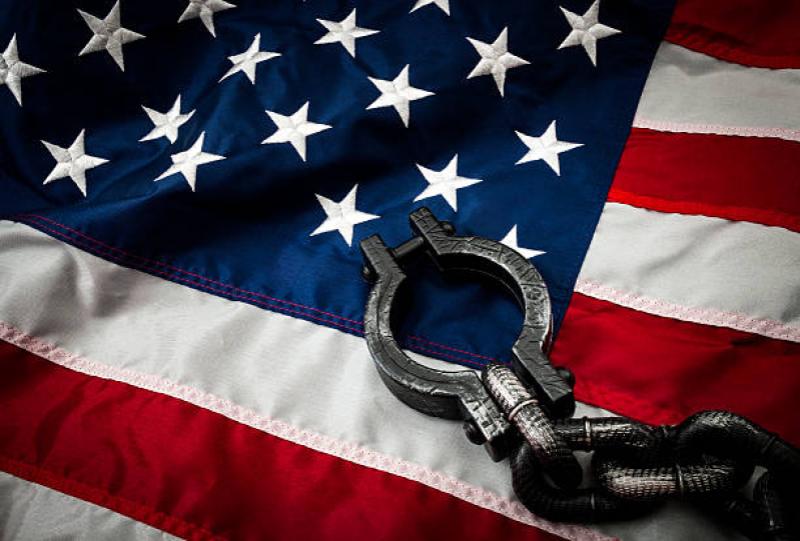
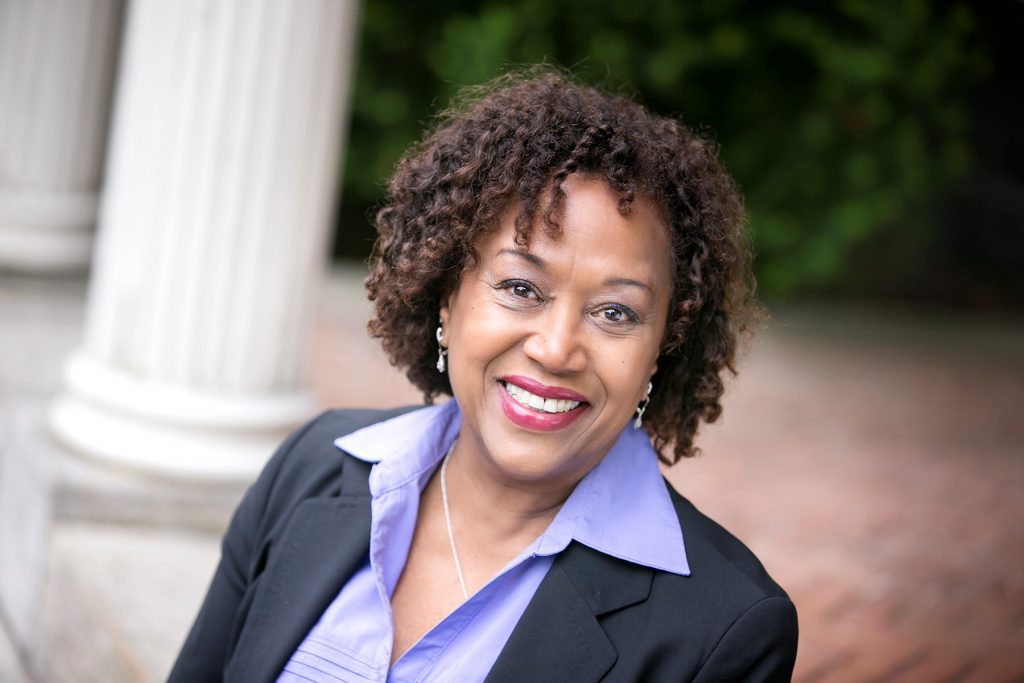
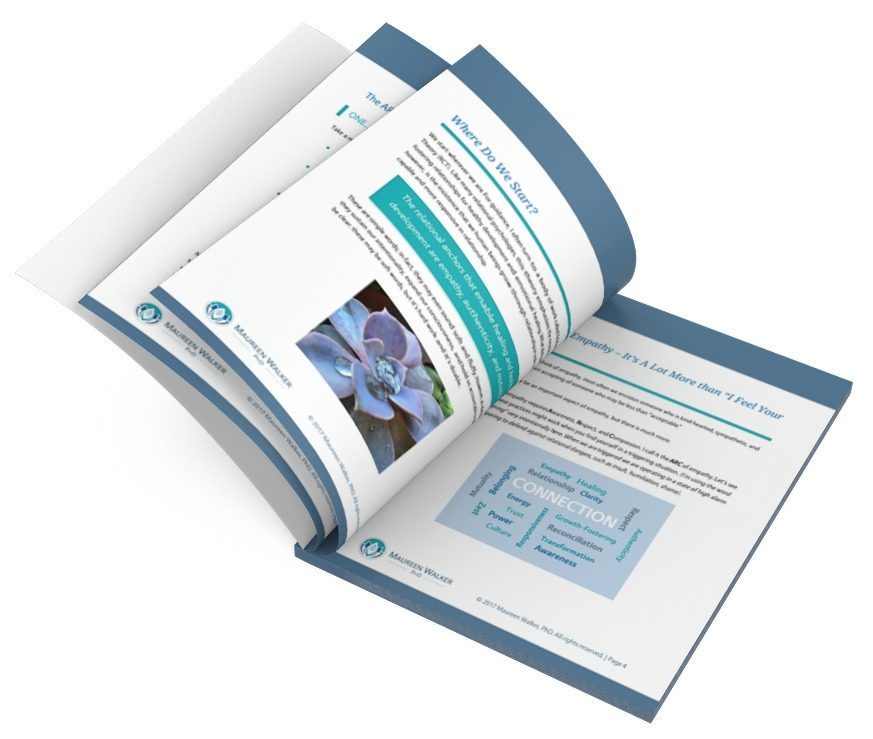
This article lets me breathe again and helps me realize how much time I waste by holding my breath and my tongue. Thank you, Maureen, for your honesty. I am a 71-year-old white female social worker who feels great relief at your calling out The Big Lie and for your affirmation of authentic connection. I have shared this with my connections in the Little Compton Coalition for Racial Justice, a group of mostly white people of all ages who organized in this small mostly white Rhode Island town to call out the racism here that supports and maintains the whiteness of the town. Our most meaningful work right now is with the police department and with the affordable housing committee , which existed to prevent affordable housing until we got two of our members elected. The authentic connection we are trying to build with one another in our group is pivotal work in a town whose culture avoids conflict, maintains grudges, and runs when anti-racism work, or anything for that matter, gets messy, even if it’s in the service of more authentic connection. If you got this far, Maureen, thank you for reading. Your words are just exactly what I needed at this moment in time.
Powerful, brutal truth in the face of too many Lies for far too long. With your honesty, your courage and your intelligence, you break it all apart, and with that, you show us an opening, a way to forage through. Thank you Maureen.
Love reading the words and wished I heard them from you in person Maureen. Attended a very self-congratulatory Juneteeth festival (actually attended many) here in the small town I live in…billed as “Mayberry with a train to NYC.” Enough said. I too am tired of how self congratulatory so many of us are. I’ve done it too at times I suppose but reading this reminds me of calling it out in a way that is real and helps us move, or crawl, or roll towards justice. ONWARD
A new sister, a baby sister really, writes to say thank you. You continue to help me resonate in places I didn’t even know I had. You make it deeper, more complicated, more thoughtful, more connected. My birthday is June 19th, and as a Native Texan, I never thought of that dat as a joyous celebratory day. May we be in closer touch? x norah